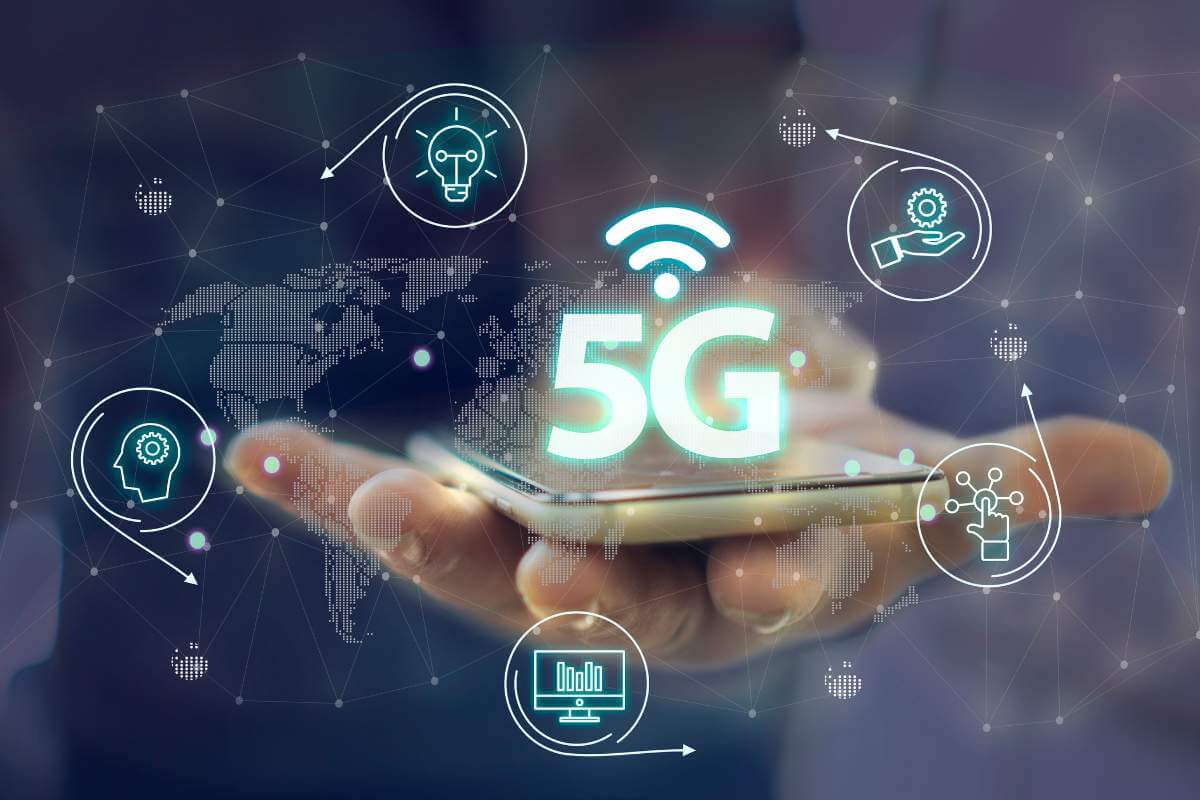Advantages and Disadvantages of 5GCellular networks employ cutting-edge technologies to give the most excellent services to mobile phone customers. The fifth generation of cellular network technology, or 5G, offers consumers more advantages. 
In many parts of the world, it is progressively replacing 4G networks, which cater to smartphone users' expectations for data access. The network helps consumers and programmers by enabling faster app deployment. To choose wisely, however, it is essential to be aware of the benefits and drawbacks of 5G technology. Advantages of 5G1. Faster speeds 5G operates more quickly on phones and other devices than 4G and 4G LTE. Users can download music, movies, and videos in seconds instead of minutes. The network's 20 Gbps speed enables businesses to utilize it for services like automation, improved web conferencing, and other things. A recent survey found that consumers who used 5G saved about 23 hours daily on downloading. 2. Short latency Compared to 4G, 5G offers lower latency and can handle emerging applications such as AI, IoT, and virtual reality more effectively. Additionally, it makes it simple for users of mobile phones to access and explore websites. Another advantage is that it gives you a connection to the internet whenever you need to look up important information. 3. Increased capability The capacity of 5G could be more than 100 times that of 4G. Performance is significantly enhanced since it helps the analysis switch between cellphones and Wi-Fi wireless solutions. In addition, it provides practical ways to access the internet. 4. Wider bandwidth One of 5G's main advantages is that it increases bandwidth, enabling the fastest possible data transmission. Additionally, mobile phone users can guarantee a quicker connection with more bandwidth by choosing a 5G network. 5. Promoting inventiveness Drones and sensors can all communicate with each other using 5G technology. It offers strategies to accelerate IoT adoption, enabling industries to increase productivity and do other things. 6. Reduced tower congestion 4G wireless networks are frequently crowded, which causes a variety of issues while obtaining critical data. 5G networks, on the other hand, allow consumers to bypass them due to faster speeds and more bandwidth. Disadvantages of 5G1. Insufficient worldwide coverage The fact that 5G has a spotty worldwide reach and is currently only available in a few locations is its major drawback. The 5G network will primarily benefit cities; remote areas may not receive coverage for several years. The costs for installing tower stations are very high compared to other networks. 2. A smaller broadcasting range Despite its fast speeds, 5G does not have the same range as 4G. Large structures and trees may also block the bandwidth of the 5Gbps, creating several problems. As a result, additional towers are required for coverage, which is both time-consuming and costly. Rain can potentially disrupt 5G coverage, which requires other safeguards. 3. Upload rates Mobile phone users may enjoy fast download rates thanks to 5G technology, and Upload rates are not much shorter than 100 Mbps compared to 4G. Furthermore, mobile phones need better battery technology for a 5G connection. Many phone owners report that when using 5G, their handsets become hotter. 4. Weakening of gadget batteries Phones that use a 5G connection will undergo significant power drain, reducing battery life significantly. As a result, producers must invest in innovative battery technology to prevent batteries from breakage and other issues. 5. Cybersecurity The possibility of hacking is one of 5G's drawbacks. Hackers can steal the database because of the higher bandwidth. Additionally, it uses software that permits vulnerable attacks. The likelihood of an attack increases considerably as 5G connects more devices. As a result, businesses and organizations will need to spend more money on a security operations centre to protect their infrastructure. 6. Lack of encryption at the start of the connection procedure Because 5G lacks encryption, hackers may organize their assaults more accurately, which will significantly impact businesses. More bandwidth will put present security monitoring under pressure, and the network will need security measures to avoid cyber assaults. Consumer education is required to improve security effectively. On the other side, efforts are being made to increase security as the initial deployment of 5G begins. Keeping all IoT devices up to speed with security patches can aid in overcoming issues with the best outcomes. Furthermore, 5G users need to take additional precautions to avoid difficulties.
Next TopicAdvantages and Disadvantages of Concrete
|
 For Videos Join Our Youtube Channel: Join Now
For Videos Join Our Youtube Channel: Join Now
Feedback
- Send your Feedback to [email protected]
Help Others, Please Share










